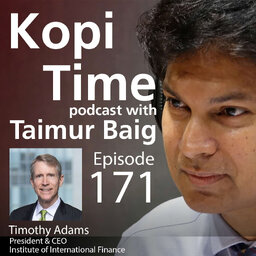Kopi Time E098 - Prem Bhatia on shifting sands in the tech start-up scene
Prem Bhatia, co-founder of Graas, a tech solution provider for e-commerce, joins Kopi Time to talk about the direction of data driven e-commerce and issues facing start-ups at the current macro backdrop. He draws on his decades-long experience as an entrepreneur and investor to make the case for data and artificial intelligence-driven solutions in the fragmented ecommerce markets in India and South-East Asia. He recognises the dark clouds looming as market correction and banking sector difficulties translate into substantially higher cost of early stage capital. Consequently, growth above all has been replaced by a welcome focus on profitable growth. At the same time, Prem remains encouraged by the wide range of promising ideas and solutions percolating around the region. He is keen to press the idea that innovation requires capital looking for both value and growth. Current selloff and higher cost of capital may well differentiate and lift up some of the best companies in the region. He considers the convergence of e-commerce and advertisement, catalysed by data analytics, as a major, consequential trend. We then discuss the present and future of data privacy, regulation, Tik Tok, and generative/predictive AI. Final word: “the ability to increase productivity is what AI delivers... AI will kill process managers by automating process management.”
In 1 playlist(s)
DBS Economics & Strategy
Social links
Follow podcast
Recent clips

Kopi Time E172: ICRIER head Shekhar Aiyar on key aspects of India’s outlook
51:26

Kopi Time E171 - IIF's Tim Adams on the Fed, US Fiscal, & Financial Stability
50:02

Kopi Time E170: Bernard Haykel on foreign policy in the Americas and the Middle-East
57:06
 DBS Economics & Strategy
DBS Economics & Strategy